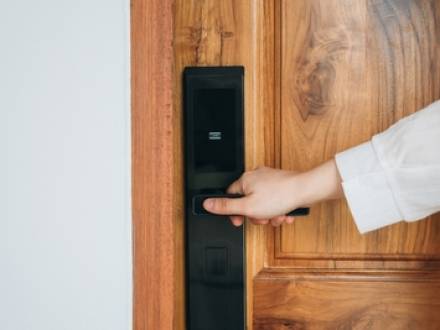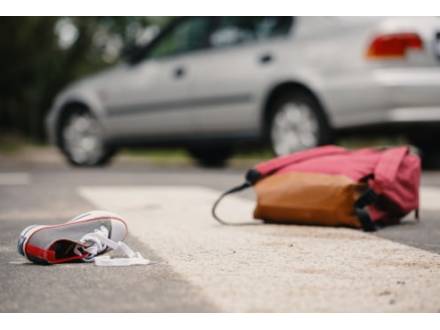Recent Blog Posts
Can Men Be Awarded Spousal Support in Texas?
 While divorce happens fairly often and people know a lot about what it involves, there are still some serious misconceptions. Some are based on old practices, and some are based on simple misunderstandings. Whatever the cause, it is important to clear up confusion with reliable information.
While divorce happens fairly often and people know a lot about what it involves, there are still some serious misconceptions. Some are based on old practices, and some are based on simple misunderstandings. Whatever the cause, it is important to clear up confusion with reliable information.
One issue that many people mistakenly think they know about is spousal support, which is commonly known as alimony. There is a popular, but inaccurate, belief that when a couple gets divorced, the husband always has to pay spousal support to the wife. In reality, decisions about spousal support are based on several factors. The spouse’s gender is not one of them. If you are considering divorce but are wondering what you might be able to expect from a settlement, speak with a knowledgeable Tarrant County, TX family law attorney for guidance.
How is Spousal Support Calculated in Texas?
In Texas, several factors are considered when calculating spousal support, including:
Can I Be Arrested in Texas for Kicking My Child Out of My House?
 Parents sometimes joke that they wish their child came with a user’s manual. In truth, parenting can be challenging, partly because every child is different and reacts differently to various situations. Some children listen when their parents tell them not to do something. Others ignore their parents’ rules. All parents are different, too, and they react to their misbehaving children in different ways.
Parents sometimes joke that they wish their child came with a user’s manual. In truth, parenting can be challenging, partly because every child is different and reacts differently to various situations. Some children listen when their parents tell them not to do something. Others ignore their parents’ rules. All parents are different, too, and they react to their misbehaving children in different ways.
In some situations, a parent might find it necessary to lock their child outside the house. However, in Texas, this might result in criminal charges of child endangerment. A recent case highlights the possible legal consequences for a parent who kicks their child out of the house. Raising a rebellious teen can feel like an uphill battle, but a knowledgeable Dallas, TX criminal defense attorney can advise you on how to protect yourself and your rights in a criminal case.
Disputes about Parental Control over a Child’s Social Media Use
 With increasing concerns about the mental health and safety of children related to online activity, Texas recently enacted a law giving parents the authority to monitor and restrict what their child does on social media. Parental approval can also be required when children create their own accounts. Unfortunately, when divorced parents with shared custody are not on the same page about their child’s internet use, it can be a source of added tension. If you and your ex disagree about how your child’s social media activity should be restricted, an experienced Dallas, TX family law attorney can offer useful guidance.
With increasing concerns about the mental health and safety of children related to online activity, Texas recently enacted a law giving parents the authority to monitor and restrict what their child does on social media. Parental approval can also be required when children create their own accounts. Unfortunately, when divorced parents with shared custody are not on the same page about their child’s internet use, it can be a source of added tension. If you and your ex disagree about how your child’s social media activity should be restricted, an experienced Dallas, TX family law attorney can offer useful guidance.
Parental Control of Social Media Explained
Texas recently enacted the Securing Children Online through Parental Empowerment (SCOPE) Act, giving parents the legal authority to access any social media accounts belonging to their children. They can monitor and limit the amount of time their child spends on these platforms and restrict the content that they can engage with.
Criminal Charges for Leaving a Child in a Vehicle in Texas
 Parents are generally free to raise their children as they see fit. They can reward them, punish them, and feed them whatever they choose. But when it comes to leaving children in a car, the authorities get involved. Since the potential damage can be severe, you could face criminal charges if your child is left unattended inside a car. If you are accused of leaving a child in your car, speak with a seasoned Dallas, TX criminal defense attorney to review your case and understand your options.
Parents are generally free to raise their children as they see fit. They can reward them, punish them, and feed them whatever they choose. But when it comes to leaving children in a car, the authorities get involved. Since the potential damage can be severe, you could face criminal charges if your child is left unattended inside a car. If you are accused of leaving a child in your car, speak with a seasoned Dallas, TX criminal defense attorney to review your case and understand your options.
Leaving a Child in a Car in Texas
Sometimes, parents drive around doing errands with their children in the car. If the errand is something simple like depositing a check at a bank or buying milk at the store, they might think it is not worth the time and effort it can take to get their child out of their car seat, keep them from having a temper tantrum inside, and buckle them back into their seats after. However, according to Texas law, intentionally leaving a young child unattended in a vehicle for more than five minutes could make a parent liable for criminal charges.
Who Gets the House in a Texas Divorce?
 So many questions need to be answered when a couple gets a divorce. Where will their children live? How will they divide their bank accounts and investments? What will happen when it is time for them to retire? One of the most commonly asked questions is what will happen to their home? There is no definitive answer because every couple weighs several factors to help them decide. If you and your spouse are considering divorce but want to understand more about the division of property, speak with an experienced Tarrant County, TX divorce lawyer.
So many questions need to be answered when a couple gets a divorce. Where will their children live? How will they divide their bank accounts and investments? What will happen when it is time for them to retire? One of the most commonly asked questions is what will happen to their home? There is no definitive answer because every couple weighs several factors to help them decide. If you and your spouse are considering divorce but want to understand more about the division of property, speak with an experienced Tarrant County, TX divorce lawyer.
What is Considered Community Property in Texas?
The state of Texas follows a community property model for the division of marital property in a divorce. Community property means anything a couple acquired during their marriage, including income, assets, and debts. Both spouses in a married couple are considered the equal owners of their community property regardless of whether only one of their names appears on the title of an asset or who earned the income.
Can I Be Convicted for Hitting a Pedestrian in a Crosswalk?
 In Texas, hitting a pedestrian in a crosswalk can have serious legal consequences. Statistics from 2022 show that pedestrian accidents accounted for 830 deaths and 1,526 injuries. These cases can escalate from mere traffic violations to serious criminal charges. This blog will explore the legal implications of crosswalk accidents. If you were involved in one as a driver, speak with a skilled Tarrant County, TX criminal defense attorney to understand more.
In Texas, hitting a pedestrian in a crosswalk can have serious legal consequences. Statistics from 2022 show that pedestrian accidents accounted for 830 deaths and 1,526 injuries. These cases can escalate from mere traffic violations to serious criminal charges. This blog will explore the legal implications of crosswalk accidents. If you were involved in one as a driver, speak with a skilled Tarrant County, TX criminal defense attorney to understand more.
Texas Transportation Laws Addressing Pedestrian Accidents
Several factors need to be considered when determining liability when a pedestrian is involved in an accident in Texas. The Texas Penal Code has several laws that apply, including:
Can Domestic Abuse Impact Your Texas Divorce?
 Every day in 2021, 6,113 victims were served by family violence resources across the state of Texas. Unfortunately, there are not enough resources to go around, with more than 1,122 requests for shelter and housing going unmet each day. These numbers are overwhelming, yet it is estimated that only 10-25 percent of survivors of family violence will access services. Family violence can be extremely harmful to all those involved. In some cases, a spouse may have been a victim of domestic abuse for so long that they are afraid to file for divorce.
Every day in 2021, 6,113 victims were served by family violence resources across the state of Texas. Unfortunately, there are not enough resources to go around, with more than 1,122 requests for shelter and housing going unmet each day. These numbers are overwhelming, yet it is estimated that only 10-25 percent of survivors of family violence will access services. Family violence can be extremely harmful to all those involved. In some cases, a spouse may have been a victim of domestic abuse for so long that they are afraid to file for divorce.
Abusers often tell their victims that if they try to leave, they will find them and kill them. A spouse who has been physically and emotionally abused for many months or years has every reason to believe this statement and little reason to disbelieve it. If you believe that divorce is the best option for you and your children, it is important to speak to a Dallas family law attorney from Law Office of Michelle Poblenz, who has been handling complex and difficult divorces for many years.
How Are Retirement Funds Divided in a Divorce?
 Divorce can be a complex process, especially when it comes to dividing assets. One of the most significant and often overlooked assets in a divorce is retirement savings. A Texas lawyer can help you understand how retirement accounts are divided during a divorce to protect your financial future.
Divorce can be a complex process, especially when it comes to dividing assets. One of the most significant and often overlooked assets in a divorce is retirement savings. A Texas lawyer can help you understand how retirement accounts are divided during a divorce to protect your financial future.
Texas Considers Retirement a Community Property
In Texas, retirement benefits accrued during the marriage are considered community property. This means that regardless of whose name is on the account, both spouses have a right to a portion of the retirement benefits earned during the marriage.
However, it is important to note that not all retirement funds are automatically split 50/50. The court considers several factors when dividing retirement assets:
- Date of marriage: Only the portion of retirement funds acquired during the marriage is subject to division.
- Separate property contributions: Any contributions made to retirement accounts before the marriage or after separation are typically considered separate property.
Can I Adopt My Step-Child in Texas?
 There are many reasons why someone might consider adoption. In some cases, people might feel they have been waiting too long to find the right person to start a family with, and they believe they can give a parentless child a loving home even without a spouse. In other cases, fertility issues and pregnancy loss might make a couple consider adopting a child. Sometimes, a parent gets married after their child with someone else was born, and that stepparent might want to officially and legally establish their relationship with the child. This article will explain the scenarios in which a child can be adopted in Texas. If you are considering this, speak with an experienced Dallas, TX adoption lawyer who can help you navigate the process.
There are many reasons why someone might consider adoption. In some cases, people might feel they have been waiting too long to find the right person to start a family with, and they believe they can give a parentless child a loving home even without a spouse. In other cases, fertility issues and pregnancy loss might make a couple consider adopting a child. Sometimes, a parent gets married after their child with someone else was born, and that stepparent might want to officially and legally establish their relationship with the child. This article will explain the scenarios in which a child can be adopted in Texas. If you are considering this, speak with an experienced Dallas, TX adoption lawyer who can help you navigate the process.
When Can Adoption Happen in Texas?
There are four main scenarios in which a child can be adopted by someone who is not their biological parent. These scenarios are:
Can Police Search My Car During a Traffic Stop?
 Police who suspect someone of possessing illegal drugs are not free to simply search for the evidence they need whenever they want to. They need a search warrant to do so, which needs to be approved by a judge, and for that to happen they first need to demonstrate that they have probable cause. However, there are some exceptions, and your car might be legally searched at a traffic stop depending on the circumstances. Many people are not aware of that and might have what could be considered evidence against them in their car, not realizing it could be searched. If your car was searched during a traffic stop and the police found sufficient evidence to arrest you, speak with a passionate Texas criminal defense lawyer about getting the evidence suppressed.
Police who suspect someone of possessing illegal drugs are not free to simply search for the evidence they need whenever they want to. They need a search warrant to do so, which needs to be approved by a judge, and for that to happen they first need to demonstrate that they have probable cause. However, there are some exceptions, and your car might be legally searched at a traffic stop depending on the circumstances. Many people are not aware of that and might have what could be considered evidence against them in their car, not realizing it could be searched. If your car was searched during a traffic stop and the police found sufficient evidence to arrest you, speak with a passionate Texas criminal defense lawyer about getting the evidence suppressed.
Probable Cause Vs. Reasonable Suspicion
Before they can search you, your home, or your property, the police need to demonstrate that they have probable cause to suspect that a crime was committed or was going to be committed. Certain extenuating circumstances might provide an exception. If the police suspect you of possessing illegal drugs, they can claim concern that any evidence against you would be destroyed, removed, hidden, or otherwise disappear if you are driving a car and they cannot immediately search it. That means that if the police claim probable cause, they can search your car and your trunk without needing a search warrant.







 469-845-3031
469-845-3031


